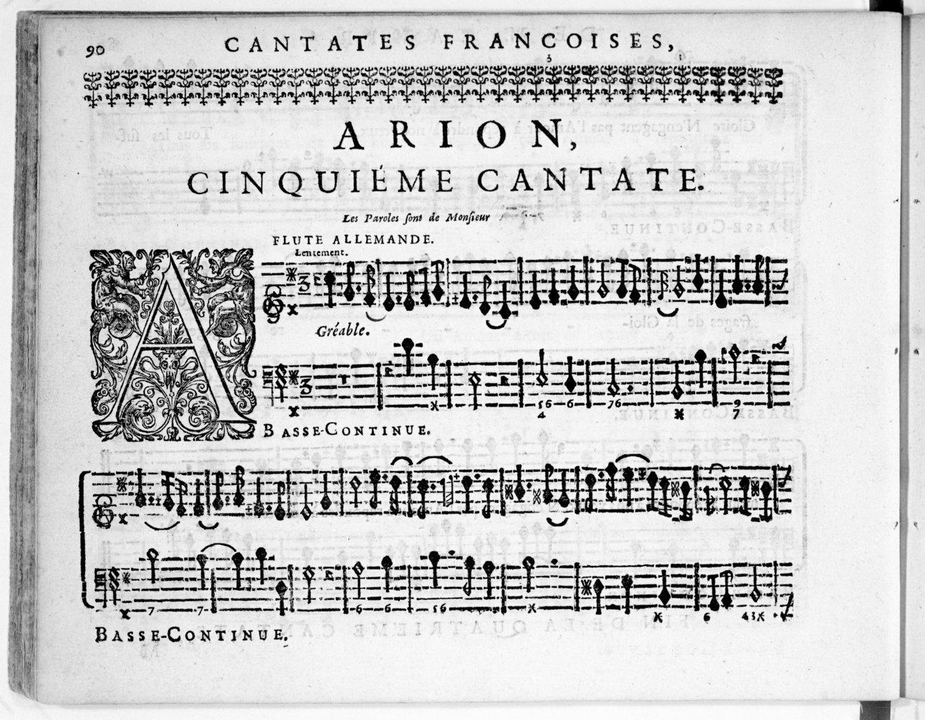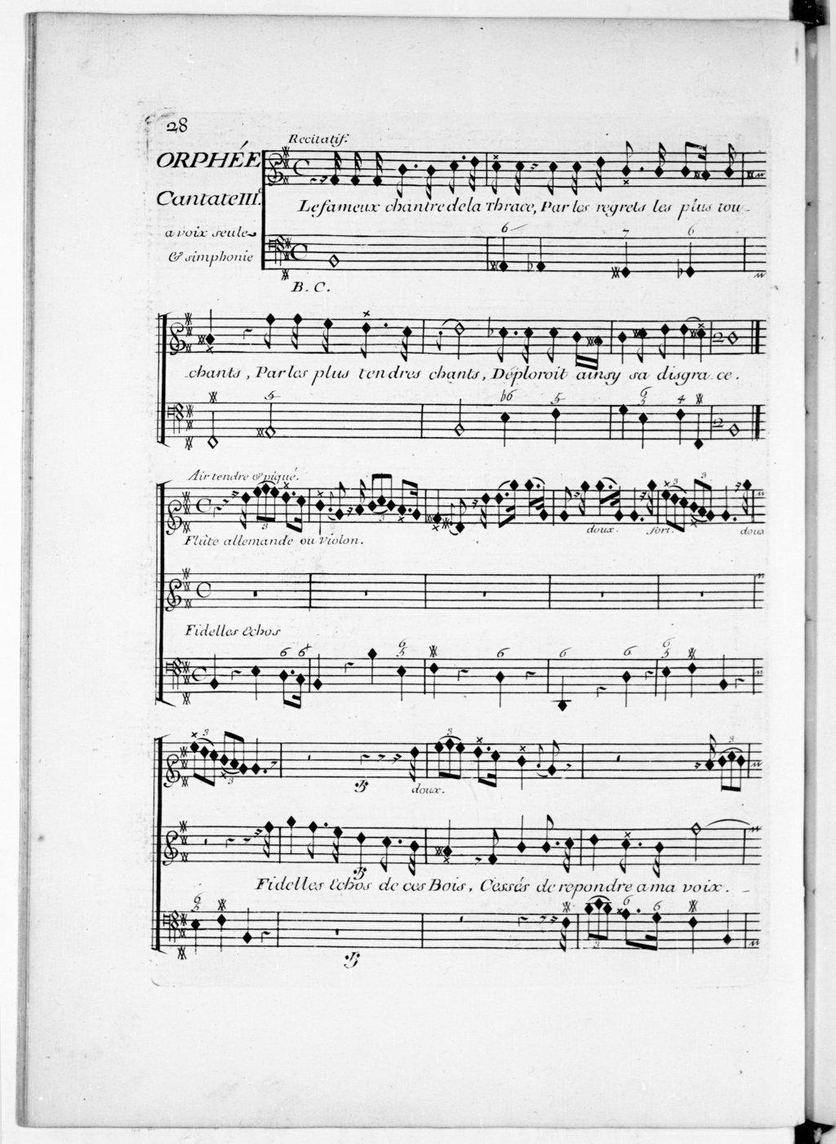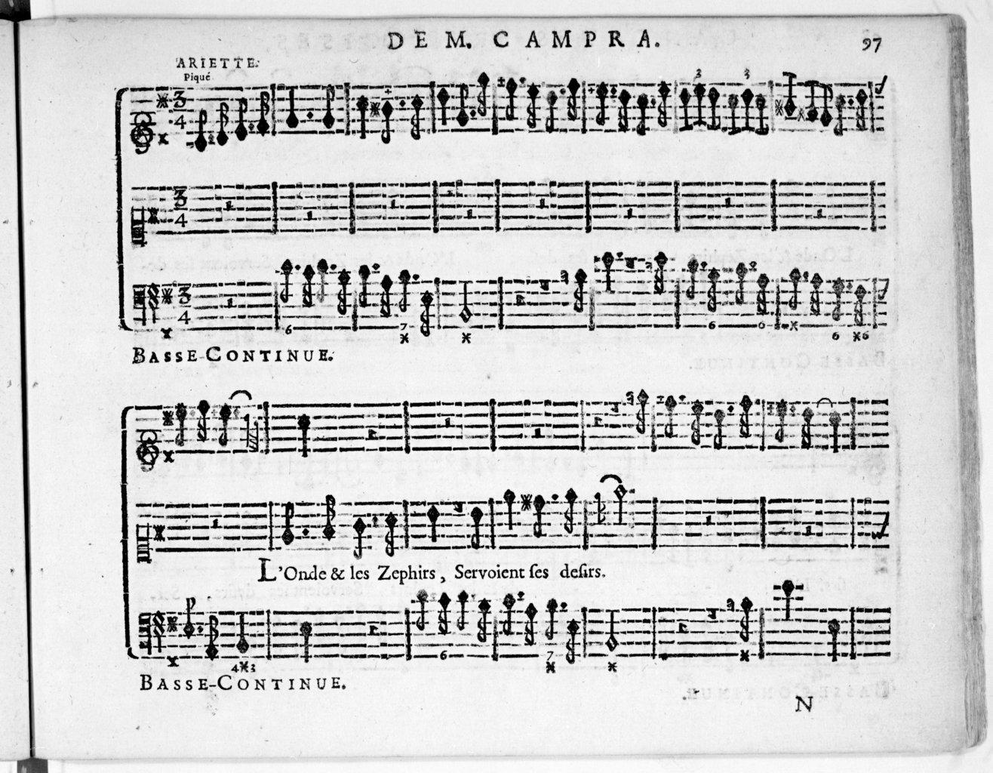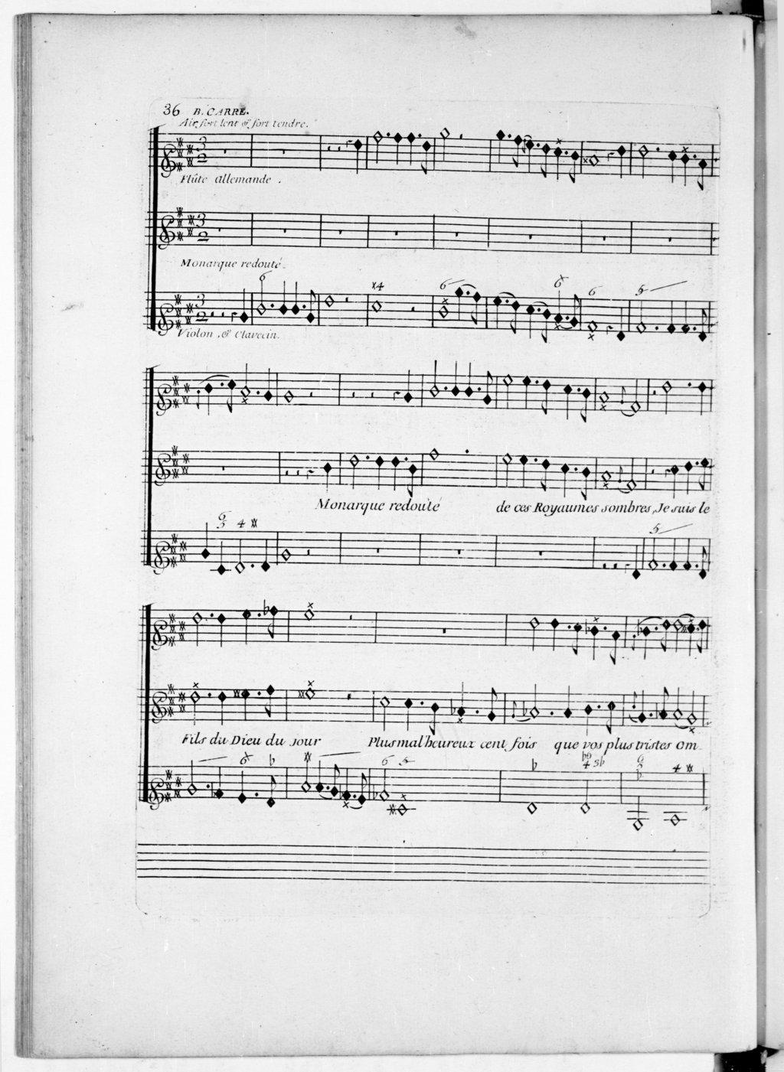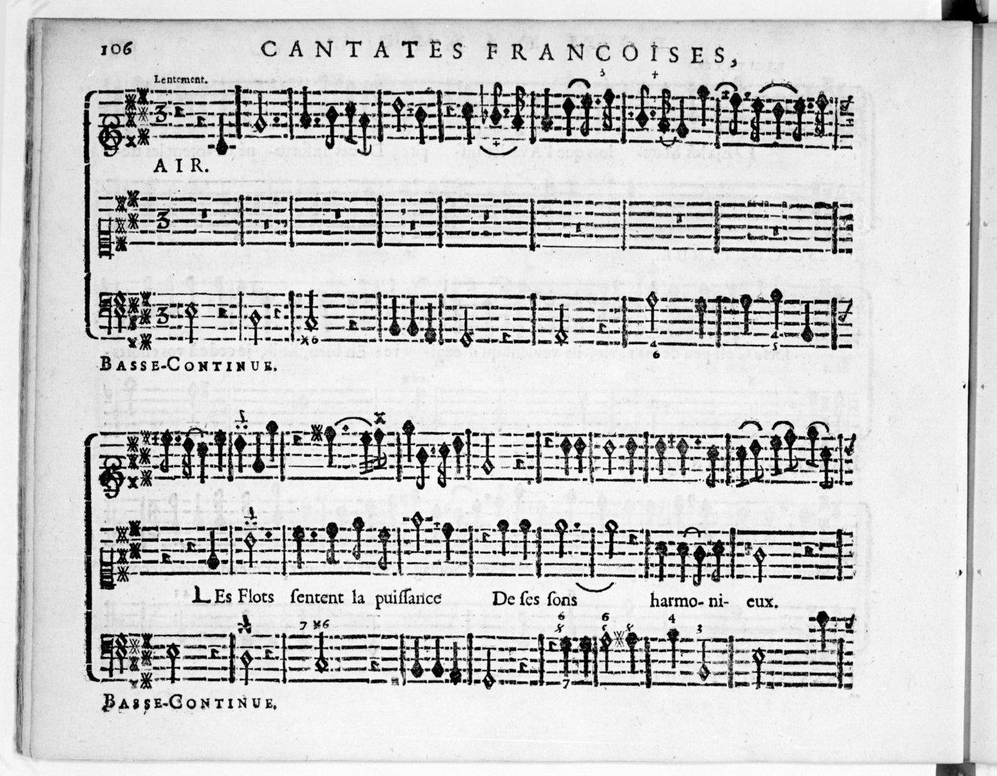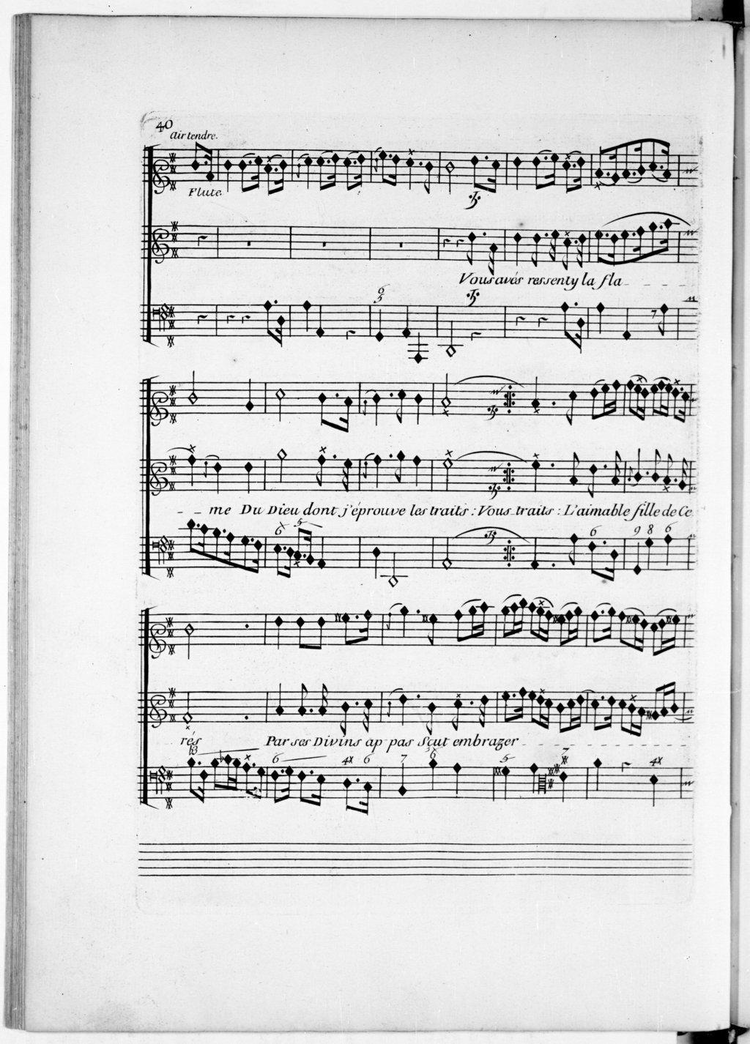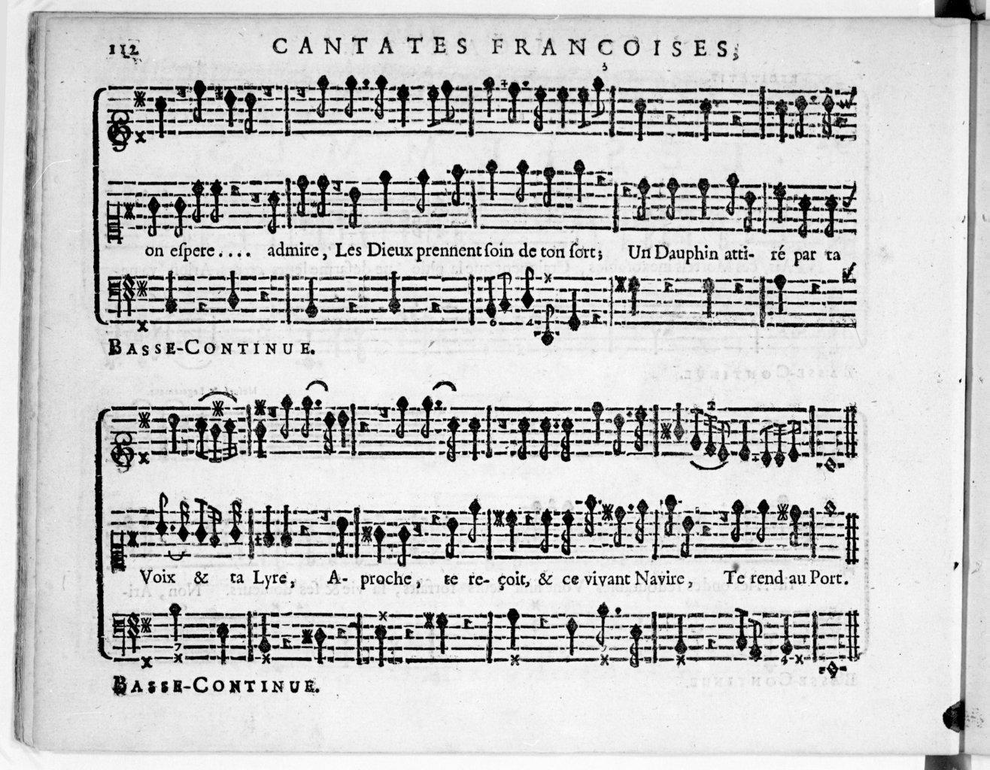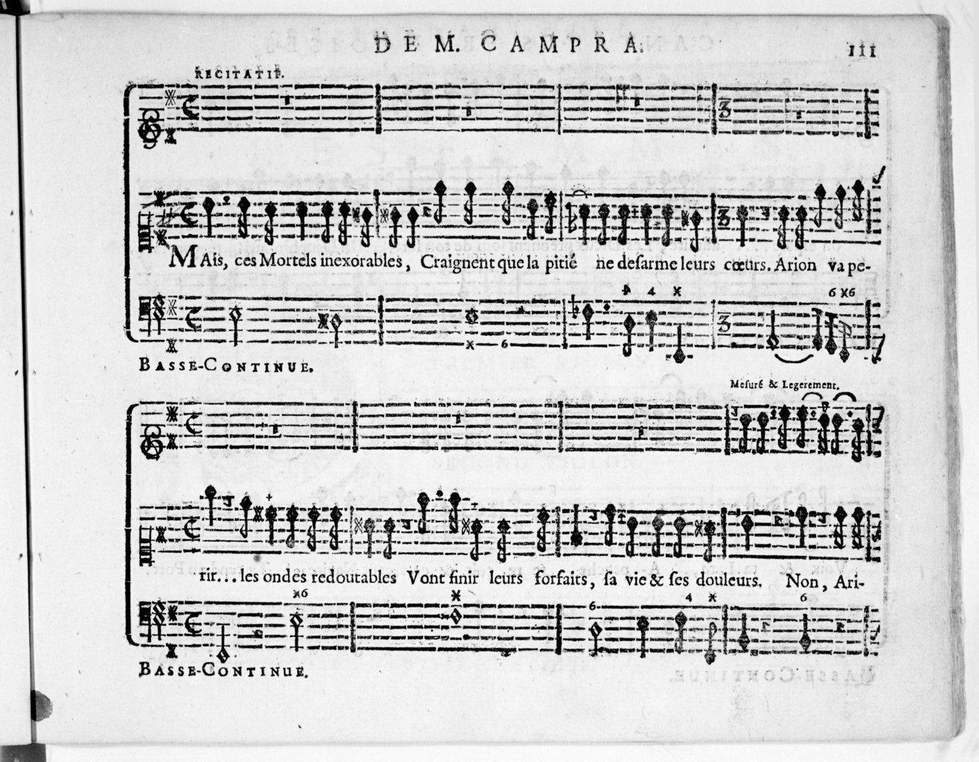Louis-Nicolas Clérambault (1676-1749)
From "Premier Livre de Cantates françaises à I et II voix avec symphonie, et sans symphonie"(Paris, 1710)
Recitative
Cependant le héros arrive
Sur l’infernale rive
Et malgré les lois d’Atropos,
Au fier Dieu des Enfers il adresse ces mots:
Air
Monarque redouté de ces Royaumes sombres
Je suis le Fils du Dieu du jour
Plus malheureux cent fois
que vos plus tristes ombres
Et mon mal’heur est causé par l’amour.
Vous voyes un amant fidelle
Privé du seul objet qui l'avoit enflamé.
Helas, le bonheur d'estre aimé
Rend ma peine encor plus cruelle.
Mineur
Laissés vous toucher par mes pleurs D’un sort affreux reparés le caprice,
Rendés-moy ma chere Euridice, Ne séparés pas nos deux cœurs.
Air tendre
Vous aves ressenty la flame
Du Dieu dont j’éprouve les traits: L'áimable fille de Cerés
Par ses Divins appas
sçut embrazer votre ame.
Campra, André (1660-1744)
From “Cantates françoises, melées de symphonies... Livre premier” (Paris, 1708)
1. Air
Agréable Enchanteresse,
Fille des tendres Amours,
Des Jeux aimable Maîtresse,
Que ne peut point ton secours ?
C'est toy céleste Harmonie,
Dont la douce tyrannie,
Sçait enchaîner les Mortels,
Et désarmer la furie
des Monstres les plus cruels.
Agréable Enchanteresse, &c.
Les éléments t'obéïssent,
Tu sembles régler leur cours;
Et les Rochers les plus sourds,
A tes accents s'attendrissent.
Agréable Enchanteresse, &c.
In the air 'Monarque redouté' With the sound of the flute, Orphée presents himself as the son of Apollon and as a mourning lover, to Pluton, to attempt to recover Euridice from the underworld. Clérambault has chosen the unusual key of B Major with a bass line played on the violin and unison harpsichord, to set in sounds the fragility of the human voice addressing the monarch of the empire of shadows. In the Baroque flute the sharps are rather low in pitch making the keys with many sharps, for example, B major, extremely fragile in tuning and in sound due to the needs of many fork fingerings. The playing of many sharps creates, as it were, an “upward” way of playing in the performer (that is, to avoid the pitch from being too low), and at the same time a sense of extreme fragility and care for the sound. Both of these features fit remarkably with the character of pleading to the God of Hell. In that case, technique disappears behind the scene and the flute becomes a vehicle of the scene content.
3. Ariette
L'Onde & les Zephirs, Servoient ses désirs. L'Aquilon rapide,
Le Tyran des flots, D'un souffle timide, Troubloit leur repos.
6. Air
Les Flots sentent la puissance De ses sons harmonieux.
Les vents les plus furieux Respirent sans violence.
De la froide Nereïde,
Le coeur s'enflâme à ses chants, Le Dieu de l'Empire humide, S'attendrit à ses accents.
L'équitable Souveraine Qui préside sur les Mers, De la plus tendre Sirene, Abandonne les concerts.
In the following aria, Orphée changes his approach to convince Pluton. In the pleasant key of D Major he reminds him of the charms of Pluton’s wife, Proserpine —daughter of Cerés, the giver of Spring— who was taken by the god to live with him in the underworld six months per year (the cold months in which Cerés refuses to bring rebirth to Earth because she can’t see Proserpine). A florid and lively ornamentation on the flute accompanies Orphée’s voice when singing about Proserpine. In this case, the key chosen is D major, which is the natural scale of the baroque flute. This is where the flute feels “at home”, where its sound is more powerful and pleasing to the player and its tuning is made easier, fork fingerings being exceptional. The art of pleasing with joy the listener´s ear to obtain something in exchange, together with flattery (speaking well about Proserpine) are extremely well expressed through the choice of a flute joyfully ornamenting in its most comfortable and free key.
